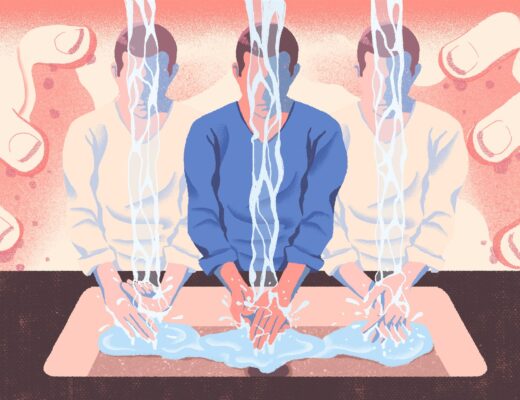Panic attacks are abrupt and intense episodes of fear, panic, or anxiety that often begin suddenly and peak within minutes. They can be overwhelming, manifesting with both physical and psychological symptoms, sometimes striking without identifiable triggers. Symptoms include difficulty breathing, profuse sweating, trembling, rapid heartbeat, and sensations like chest pain or abdominal discomfort, often accompanied by a feeling of detachment from reality. This fear can be so intense that individuals may mistake it for a heart attack or stroke.
Here are several strategies for managing or alleviating panic attacks, some of which may offer immediate relief, while others provide longer-term support:
- During a panic attack, it’s crucial to remind yourself that it will eventually subside, and you can take steps to manage it effectively.
- Engage in deep breathing exercises, inhaling slowly through your nose for a count of four, holding your breath for four counts, and exhaling slowly through your mouth for another count of four. Repeat this process until you feel calmer.
- Practice mindfulness and grounding techniques, focusing on your senses to anchor yourself in the present moment by identifying things you can see, touch, hear, smell, and taste.
- Utilize progressive muscle relaxation by tensing and then relaxing each muscle group in your body, starting from your toes and moving upwards. This can help alleviate physical tension and induce relaxation.
- Challenge negative thoughts that contribute to your panic by questioning their validity and considering alternative explanations.
- Employ visualization techniques, imagining yourself in a serene and secure environment, vividly picturing every detail to engage all your senses.
- Emphasize acceptance of your anxious feelings, acknowledging that it’s normal to feel this way, and trusting that these feelings will eventually pass. Avoiding resistance to panic can prevent exacerbating the symptoms.
- Reach out to a trusted individual for support and share your experience with them, as talking about it can alleviate panic symptoms for some.
- Prioritize self-care activities like regular exercise, healthy eating, practice sleep hygiene, and relaxation practices such as yoga or meditation to promote overall well-being.
- Stop the use of substances like alcohol, cannabis, or cigarettes.
- If panic attacks persist or intensify, consider seeking professional help from a mental health professional who can offer therapy, medication, or other personalized treatments tailored to your needs.
Remember that finding the most effective coping strategies may require some experimentation, as what works best can vary from person to person.



I was feeling anxiety all symptoms and will meet you once a time in expert clinic but now after eating 1 month medicine will feel well